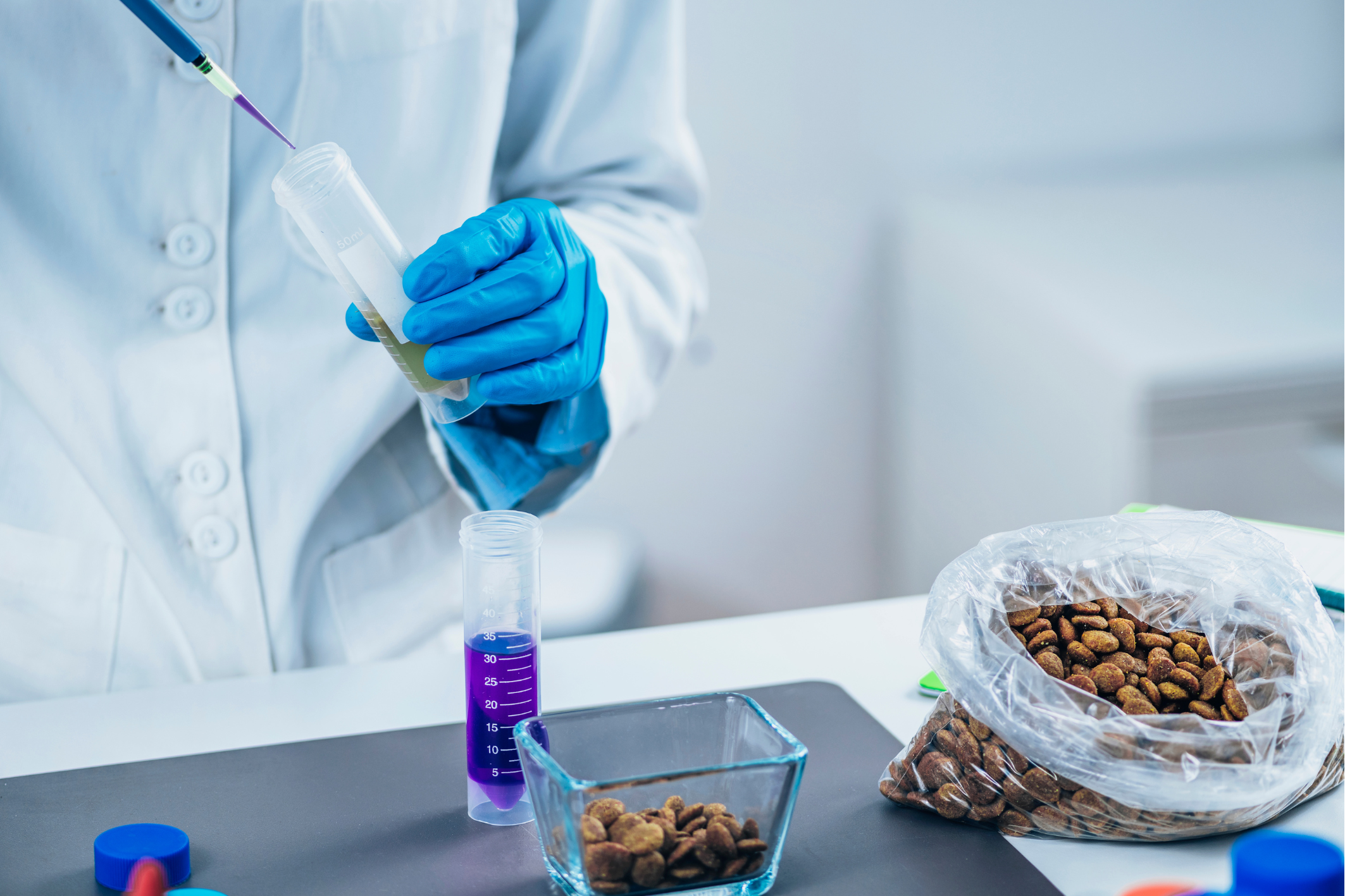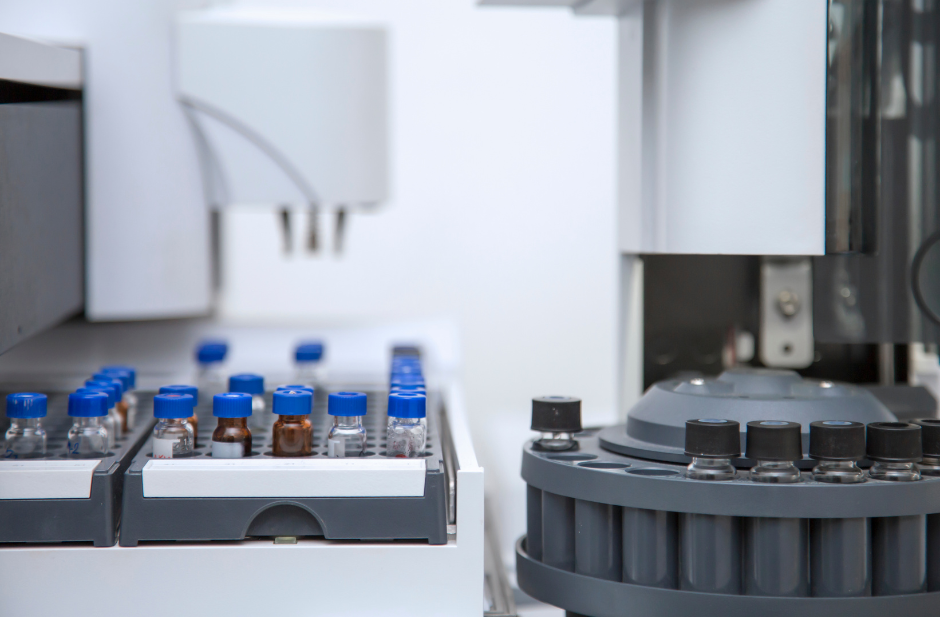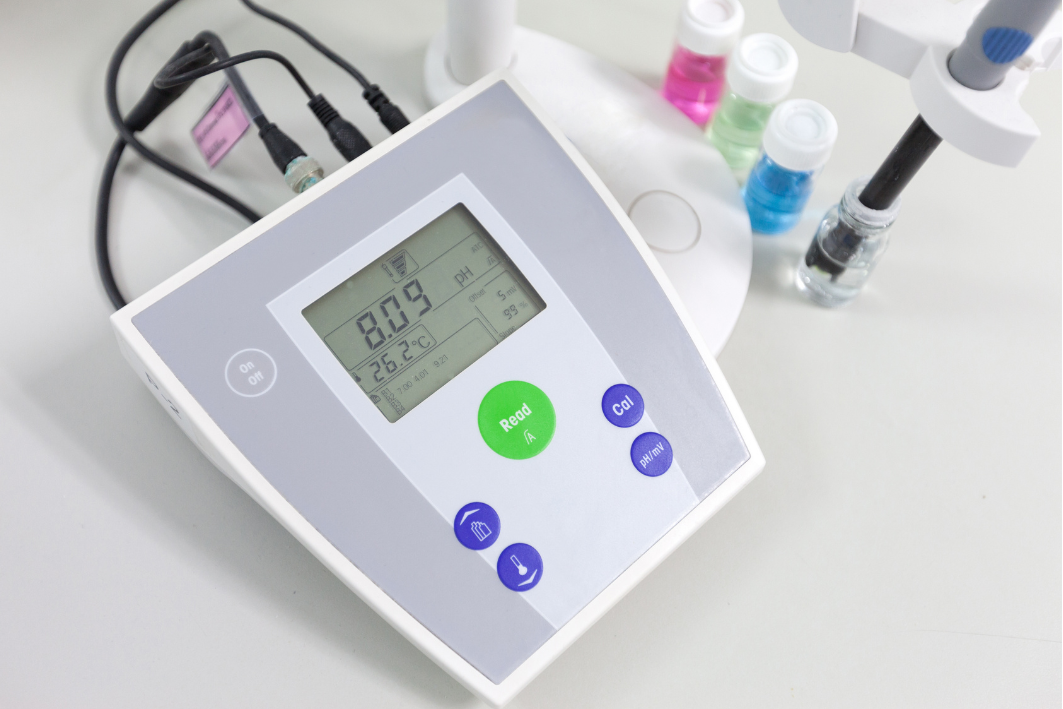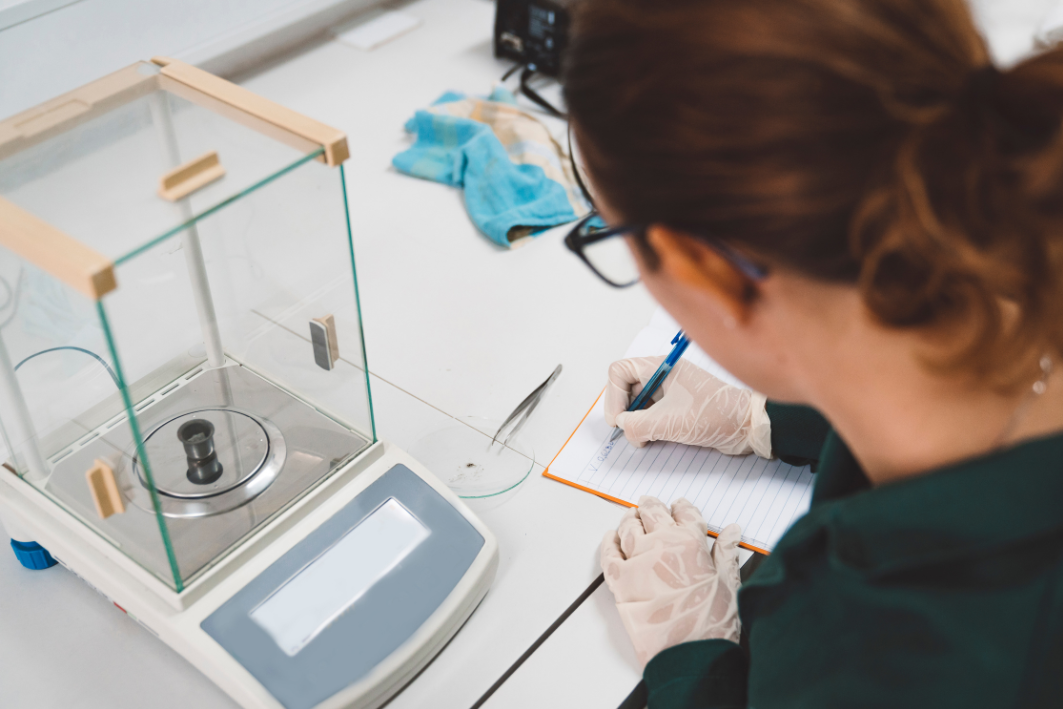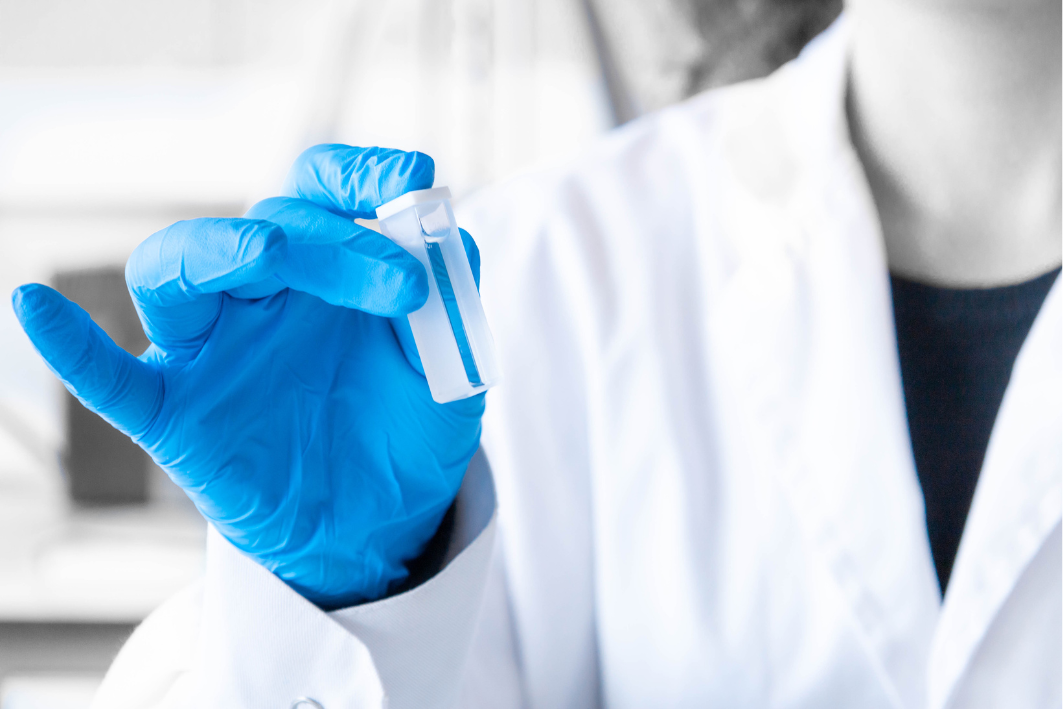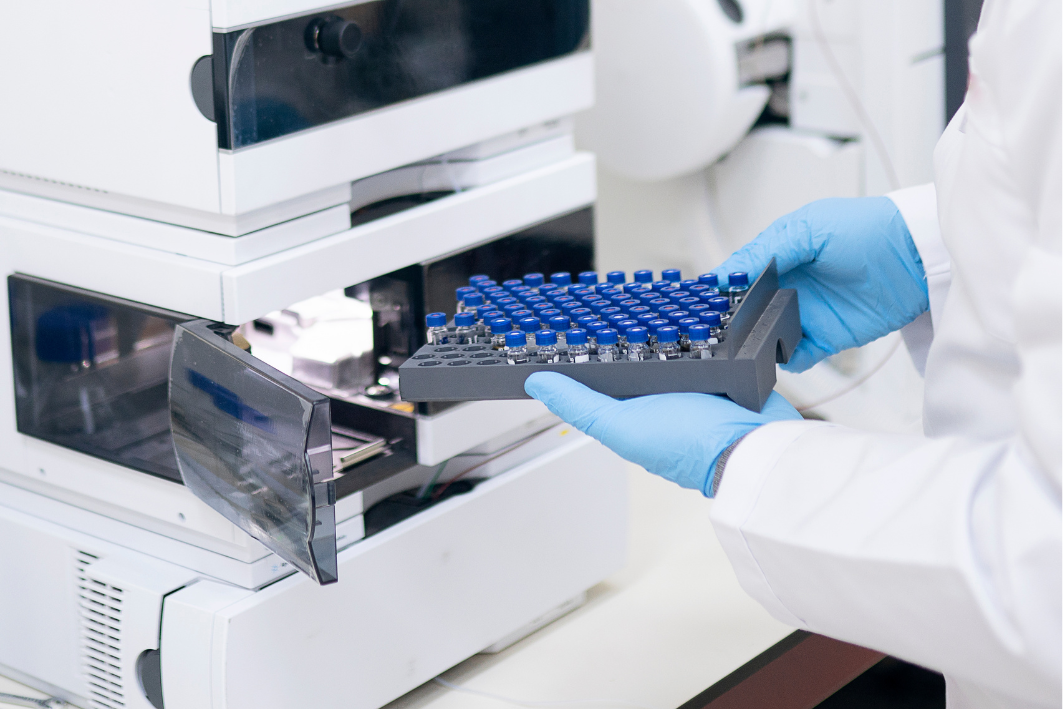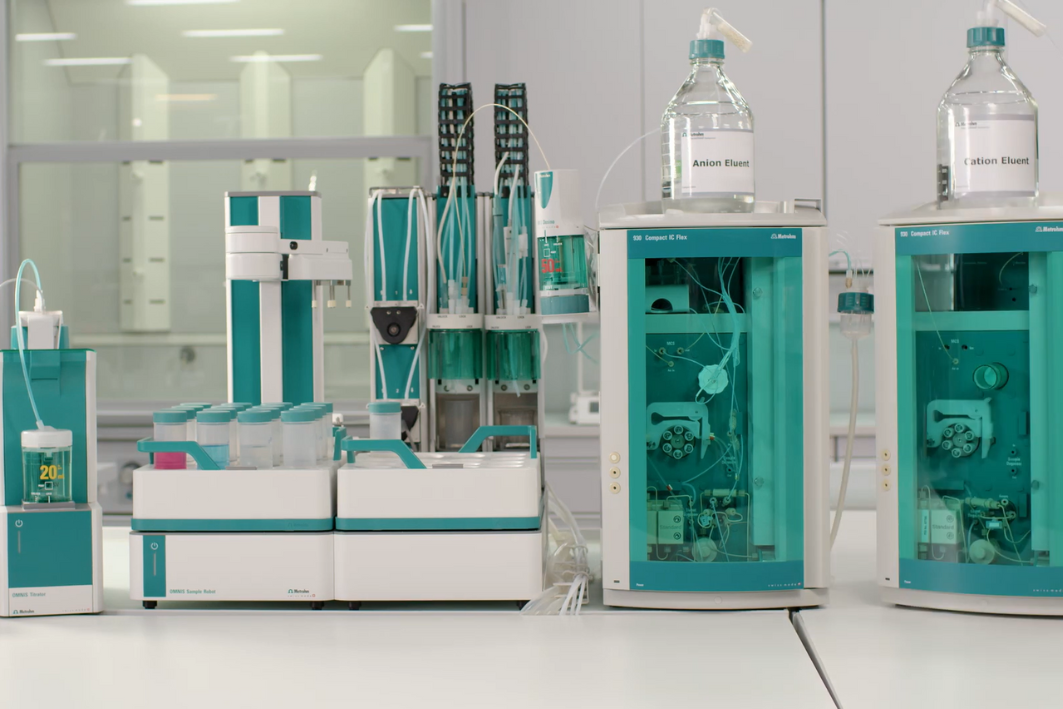
FOOD
TEL EXPERT SOLUTIONS | Managed by Experts. Overseen by Experts.
Food Testing
Laboratory testing of food is a crucial process that ensures food products are safe, compliant and of the highest quality before reaching consumers. For manufacturers, importers and distributors, such testing is non-negotiable in many countries and regions.
In an increasingly regulated global market, failing to account for food safety and quality requirements can lead to severe consequences, including costly recalls, legal penalties and irreparable damage to your brand’s reputation. Proper testing protects consumers and empowers businesses to confidently introduce products that meet or exceed market expectations.
In today’s competitive and compliance-driven food industry, partnering with a trusted service is more than just a regulatory necessity, but a strategic move. Let TEL Expert Solutions help you navigate the complexities of food testing, ensuring your products are fully compliant and market-ready.
WHAT IS FOOD TESTING?
Food testing is the scientific examination of food products to verify its safety, quality and integrity. As food journeys from farm to table, it may contain, encounter and gather contaminants, such as toxic pesticide residues, harmful pathogens, allergens, heavy metals and particulate matter, which can pose health risks to consumers.
Laboratory testing is, thus, the first line of defence to safeguard and assure the quality of pre-packaged food, freshly prepared meals, beverages and snacks, as well as the raw ingredients used. Testing also helps detect and quantify contaminants, verify food label claims and ensure compliance with local and international regulatory standards.
Testing provides a safer food supply chain and builds consumer confidence. Without it, even a small oversight can trigger devastating repercussion that includes health issues, legal action, costly recalls and brand damage.
WHY IS FOOD TESTING IMPORTANT?
The stakes have never been higher. Food businesses today are under high pressure to meet increasing consumer expectations, tighter regulations and global quality benchmarks.
Here’s why food testing matters:
Food Safety – Protect your consumers from harmful bacteria and contaminants
Allergen Management – Safeguard vulnerable consumers and comply with labelling laws
Regulatory Compliance – Meet stringent food laws in Singapore and key global markets like the US, EU, China, Australia and beyond
Product Consistency – Deliver the same quality, taste and texture with every product launch
Recall Prevention – Reduce the risk of product recalls and litigations
Market Access – Gain clearance for retail, export, e-commerce platforms and certification schemes (i.e. Healther Choice Symbol (HCS), Nutri-Grade, Halal, Organic, etc.)
Brand Trust – Build and maintain consumer confidence
Common Food Tests:
-
Ensures accurate labeling of product weights and volumes, building consumer trust and regulatory compliance.
Commonly Requested Weights and Measures Tests
Net weight, Gross weight, Net volume, Gross volume -
Verifies that food products meet defined quality standards, ensuring safety and consistency in the market.
Commonly Requested Food Specification Tests
Food nutrients (nutrition labelling), Alcohol, Ash, Moisture, Peroxide value, Water activity, pH, and moreInformation to:
Nutrition Labelling -
Tests the quantity of additives to ensure they are within safe limits, protecting consumers from potential health risks.
Commonly Requested Food Additive Tests
Chemical Preservatives: Benzoic acid, Paraben, Nitrites, Sorbate acid, Propionic Acid, and more
Anti-Oxidants: BHA, BHT, Octyl gallate, Propyl gallate, and more
Colouring: Allura red AC, Carmoisine, Indigo carmine, Sudan dyes, Tartrazine, and more
Nutrient Supplements: Amino Acids, Minerals, Vitamins, and more
Sweetening Agents: Sweeteners (i.e. Acesulfame-K, Cyclamates, Saccharin, Sucralose) -
Identifies allergens to prevent cross-contamination and allergic reactions, ensuring clear labeling and consumer safety.
Common Requested Allergen Tests
Crustacean, Egg, Fish, Gluten, Milk, Soya bean, Sulfites, Peanuts, Tree nuts, Wheat -
Detects harmful organic substances that can enter the food supply, safeguarding public health from environmental and process contaminants.
Commonly Requested Organic Contaminants Tests
Environmental Contaminants: Dioxins, Per- and polyfluoroalkyl substances (PFAS), Polycyclic aromatic hydrocarbons (PAH)
Process Contaminants: 3-Monochloropropane-1,2-diol (3-MCPD) and glycidyl esters, Acrylamide, Melamine, Nitrosamines -
Tests for harmful inorganic substances to prevent health issues associated with contamination.
Commonly Requested Inorganic Contaminants Tests
Antimony, Arsenic, Cadmium, Lead, Mercury, Tin -
Ensures that products containing meat are free from residues of antibiotics, banned drugs and growth promoters, protecting consumer health and compliance with regulations.
Selected Drugs and Residues
Amoxicillin, Beta-agonists, Chloramphenicol, Doxycycline, Penicillins, Tetracyclines, Trimethoprim, and more -
Identifies toxins produced by microorganisms or plants, preventing foodborne illnesses and health risks.
Commonly Requested Foodbourne & Natural Toxins Tests
Mycotoxins: Aflatoxins, Ochratoxin A, Patulin, and more
Marine Biotoxins: Amnesic Shellfish Poisons (ASP), Azaspiracids (AZA), Brevetoxins (PbTXs), Diarrhetic Shellfish Poisons (DSP), Histamine, Paralytic Shellfish Poison (PSP), and more
Natural Toxins: Pyrrolizidine alkaloids (PAs), and more -
Ensure that food products are free from pesticide chemicals to ensure food safety and compliance with established limits, protecting consumers from potential toxicity.
Selected Pesticides Residues
Acephate, Dithiocarbamates, Methamidophos, Permethrin, Pirimiphos-methyl, Ziram, and more -
Detects harmful microorganisms in food products, preventing foodborne illnesses and maintaining product quality.
Commonly Requested Microbiological Tests
Escherichia coli, Bacillus cereus, Clostridium perfringens, Staphylococcus aureus, Salmonella spp., Listeria monocytogenes, Total Plate Count (TPC), Total Yeast and Mould Count (TYMC), and more -
Measures radioactive substances in food to ensure safety and protect consumers from health risks associated with radiation exposure.
Commonly Requested Radioactivity Tests
I-131, Cs-134, Cs-137, Pu-239, and more -
Verifies the true nature and grade of food products, protecting consumers from fraud and ensuring they receive what they pay for.
Commonly Requested Authenticity Tests
Edible bird's nest (EBN), Olive oil, Coffee, and more
HOW IS TESTING CONDUCTED AND TO WHAT STANDARD IS IT MEASURED AGAINST?
Food testing is typically performed either at the manufacturer’s quality control unit or an accredited ISO 17025-accredited third-party laboratory by highly-experienced technicians and skilled chemists and microbiologists.
A typical food testing process follows the following rigorous scientific flow:
Test methods are often based on sound research and development by the laboratory, or conducted meticulously over instructions within standards, official methods and compendial.
Selected Examples of Standards, Official Methods and Compendial
ISO Testing Standards
EN and BS Testing Standards
GB (Guojia Biaozhun) Testing Standards
Singapore Standards (SS) Testing Standards
AOAC (Association of Official Analytical Chemists) Official Methods of Analysis
AOCS (American Oil Chemists' Society) Methods
Codex Alimentarius - International Food Standards and Guidelines
JECFA (Joint FAO/WHO Expert Committee on Food Additives) Methods
Food and Chemicals Codex (FCC)
United States Pharmacopoeia (USP)
European Pharmacopoeia (Ph Eur)
British Pharmacopoeia (BP)
These references serve to assist with ensuring your products meet the most up-to-date safety and quality requirements, no matter your marketing country or region.
IS FOOD TESTING MANDATORY?
Depending on jurisdictions, laboratory testing of food may not be optional; certain countries or regions may require food testing (conducted internally by the manufacturer or externally by a ISO 17025-accredited laboratory) as part of their product registration or importing process.
This may be appliable if you are a:
Food trader or importer
Distributor
Food manufacturer
Company or individual with food products claiming health or nutrient benefits
Non-compliance may result in import rejections, penalties, loss of licenses, product recalls or reputational damage. Even when it is not strictly necessary, it is often the only certain way of establishing due diligence, traceability and accountability.
Ultimately, testing enables you to protect your brand, guarantee your access to market and provide for your consumers with assurance.
Food Testing in Singapore: What Should You Know Based on Your Role
In Singapore, food safety and public health is regulated primarily by the Singapore Food Agency (SFA), with Health Promotion Board (HPB) overseeing nutrition-related initiatives. Whether you are manufacturing locally, distributing pre-packaged food, importing food products for overseas or just starting your food business journey, it is important to understand the testing and compliance expectations relevant to your business.
Food products are generally classified into seven (7) categories of food and food products in Singapore:
Meat and Meat Products
Fish and Fish Products
Fresh Fruits and Vegetables
Shell eggs and processed eggs
Processed Food and Food Appliances
Live animals (live poultry & livestock)
Rice
FOR MANUFACTURERS
SFA Requirements:
Food testing on finished product for certain chemical and microbiological hazards (depend on classification of food product) is recommended to ensure food safety
Shelf-life study by food testing of certain parameters is recommended for food products with long shelf life
Certain chemical and microbiological tests on products for export may be mandatory as part of the process to obtain Health Certificate or Export Certificate from SFA
HPB Requirements:
Generation of Nutrition Information Panel (NIP) by food testing is recommended
Food testing on nutrition parameters is mandatory if you wish to display Healthier Choice Symbol (HCS) on your product
Food testing on nutrition parameters is recommended to acertain the Nutri-Grade score of food and beverage products
Certification (i.e. Halal, Kosher, Organic etc.) Requirements:
Food testing on certain parameters (i.e. alcohol content, porcine screening, etc.) is often mandatory for certification
HACCP or GMP Requirements:
Manufacturers are expected to conduct testing routinely as part of Good Manufacturing Practice (GMP) and HACCP (Hazard Analysis and Critical Control Points)
FOR TRADERS AND DISTRIBUTORS
SFA Requirements:
For locally produced pre-packaged food to be sold in Singapore, traders and distributors should verify that their suppliers are SFA-licensed and compliant and that the products they trade come with valid testing reports where necessary
For foreign pre-packaged food that is meant for imported to Singapore, food products considered high-risk are subject to mandatory pre- and post-import testing via Health Certificates from regulatory of exporting country and local food testing as ordered by SFA respectively
HPB Guidelines:
Food testing on nutrition parameters is mandatory if you wish to display Healthier Choice Symbol (HCS) on your product
Food testing on nutrition parameters is recommended to acertain the Nutri-Grade score of food and beverage products
Certification (i.e. Halal, Kosher, Organic etc.) Requirements:
Food testing on certain parameters (i.e. alcohol content, porcine screening, etc.) is often mandatory for certification
FOR ASPIRING HOME BAKERS, HOME COOKS AND FOOD ENTREPRENEURS
SFA Requirements:
Food testing is recommended if you are scaling your business into retail or if your product has a longer shelf life
Note: Home-based food businesses are not allowed to distribute pre-packaged food products to retail food establishments and temporary fair stalls unless they have been licenced by SFA.
HPB Requirements:
Food testing on nutrition parameters is mandatory if you wish to display Healthier Choice Symbol (HCS) on your product
Food testing on nutrition parameters is recommended to acertain the Nutri-Grade score of food and beverage products
Certification (i.e. Halal, Kosher, Organic etc.) Requirements:
Food testing on certain parameters (i.e. alcohol content, porcine screening, etc.) is often mandatory for certification
ENFORCEMENT BY REGULATORY
SFA Actions:
Market Monitoring Programme by SFA’s surveillance system to identify any potential food safety risks
Food products sampled randomly and tested for microbiological hazards, including bacteria like Salmonella or viruses like Norovirus, as well as chemical hazards, such as pesticides, drug residues, and other contaminants
If food products are found to be unsafe for consumption, it will trigger SFA’s follow-up actions, which can include industry engagement and food recalls. When SFA directs a food recall, importers and/or distributors are required to work with retailers to remove implicated food products that are already in the market. SFA will also alert the public of food recalls through press releases, social media posts, and through the media.
HPB Actions:
Audit checks by the Ministry of Health (MOH) and/or HPB by the following methods may be conducted to monitor compliance:
Food products sampled randomly and sent for laboratory analysis to determine their nutrient values and their respective Nutri-Grade score (if relevant)
Request for information from manufacturers, importers and/or distributors to support the information displayed on the nutrition panel or front-of-pack labels i.e. Healthier Choice Symbol (HCS), Nutri-Grade mark, etc.
If HPB-tested values or Nutri-Grade score is grossly different from the label, penalty based on prevailing Food Acts and Regulations may apply to the manufacturer, importer or distributor.
LET US SUPPORT YOU
Knowing which food tests your product needs can be confusing, especially with evolving standards and complex supply chains, but that’s exactly where we come in. Our team provides expert consultation to ensure your food products undergo the right tests for safety, quality and compliance. While we do not carry out the testing ourselves, we work exclusively with our partner ISO 17025-accredited laboratories to ensure results you can trust. More importantly, we help you understand what those results mean, and if something goes wrong, we step in to assist you in resolving the issue. From recommending only the necessary tests to troubleshooting issues and reviewing lab reports with clarity, our goal is to support you at every stage so you can move forward with confidence and avoid costly missteps.
THE TEL EXPERT SOLUTIONS DIFFERENCE
Why go directly to a laboratory when you can have experienced industry experts guiding you every step of the way? With us, you are not just getting a test, you are getting trusted advice and full support to resolve any issues.
| Considerations | Elaborations | TEL Expert Solutions Consultants | Other Food Labelling Consultants | Testing Experts or Advisors |
|---|---|---|---|---|
| COMPREHENSIVE FOOD TESTING SERVICES | ||||
| Wide Range of Testing Capabilities | We work in partnership with numerous ISO 17025-accredited laboratories to provide a comprehensive range of testing services, from routine to complex, using both instrumental and non-instrumental methods tailored to your requirements. | ✔ | May Not | Limited* |
| Dedicated Expert Support | Experienced experts are assigned to you, not just coordinators; our experts do not just coordinate testing with laboratories, but also supports the reviewing of test results to ensure accuracy and reliability. | ✔ | May Not | ✔ |
| Independent Review of Questionable Results | Our analytical and quality experts can independently evaluate any unexpected or questionable test results to ensure unbiased conclusions. | ✔ | May Not | May Not |
| Continued Support | We understand that questions or concerns may arise even after obtaining the test results. To ensure continued support, we offer a follow-up query service in our packages so clients are never left without guidance. | ✔ | May Not | May Not |
| RESOURCES & TECHNICAL KNOWLEDGE | ||||
| Access to Comprehensive Test Method Libraries | We maintain access to an extensive repository of validated test methods, including AOAC, ISO, GB, BS, EU and SS standards, official compendia and the latest scientific literature to support precise and compliant testing strategies. | ✔ | Limited* | Limited* |
| Up-to-Date Regulatory Expertise | Our regulatory affairs team actively monitors both local and international food regulations, ensuring that your products remain compliant in all your target markets. | ✔ | ✔ | May Not |
| TRANSPARENCY & INTEGRITY | ||||
| Choice of ISO 17025-Accredited Labs and Transparent Pricing | We provide clear quotations from our ISO 17025-accredited partner laboratories, allowing you to evaluate and select the most suitable options without bias or hidden agendas. | ✔ | May Not | Limited* |
| Balanced Recommendations | We present both the advantages and limitations of all approaches to support your decision-making process. | ✔ | May Not | May Not |
| Client-Focused Fee Structure | Our fees are transparent with no hidden cost, ensuring the focus remains on you rather than meeting internal KPIs. We also apply a cap on consultation fees for additional testing requests so as to put focus on you. | ✔ | May Not | May Not |
| *Please clarify with your consultant, expert or advisor if they offer the respective areas of consideration. | ||||
SERVICE AND PRICING STRUCTURE
Laboratory testing services are provided and performed by our ISO 17025-accredited local and overseas partners.
TEL Expert Solutions charges a flat administrative, coordination and result review fee of SGD 8 per test parameter per order (capped at SGD 60; inclusive of 9% GST). This includes a thorough review of results, especially in cases where issues arise, to ensure accuracy, clarity and peace of mind.
by Technique
Notes to Laboratory Testing Services
[1] Pricing Estimates : The prices listed in each respective Service Card are estimates and may vary. Price variations may be due to factors including, but not limited to, differences between test methods, sample matrices, test complexity, the need for specific instruments, consumables or chemicals, geographical testing location and the branding of the partner laboratory. Please contact TEL Expert Solutions for the most current pricing.
[2] Testing Partners : Laboratory testing is conducted by our local or overseas ISO 17025-accredited partners. Depending on the test requested or customer preferences, customers may choose from a selection of accredited partner laboratories to align with their business strategies, such as brand or cost considerations.
[3] Administrative, Coordination and Review Fee : The SGD 8 administrative, coordination and result review fee charged by TEL Expert Solutions covers the coordination of testing between the customer and our partner laboratory, as well as the review of test results in cases of discrepancies. In the event of discrepancies, TEL Expert Solutions will objectively assess the information and data provided by both parties, and provide our conclusions. If retesting is required by the customer (at the same or another partner laboratory), the customer may incur additional testing charges, particularly if the retest results are statistically similar to the original results.
[4] Courier Fee : The SGD 8 administrative, coordination and result review fee does not include the courier fee for the delivery of samples to our partner laboratory. This fee may be waived by our local partners if testing fees exceed a certain threshold. If courier support by TEL Expert Solutions is needed, we will coordinate the delivery of samples to the partner laboratories at SGD 20 per trip (inclusive of 9% GST). For testing at our overseas partners, courier charges are set at SGD 60 per trip (inclusive of 9% GST).
[5] Supplementary Services : Additional charges may apply for any supplementary services or parameters requested.
OPTIONAL ADD-ON SERVICES
Food Product Labelling
Reviews essential components within food and beverage products
SGD 80 per product
Generation of Nutrition Information Panel or Nutrition Facts Label
by Food Testing: From SGD 160 per product
Test Method Review
Reviews test method suitability for food product or matrix
SGD 50 per method
NOTE: For in-house methods, customers must submit their test method for review. For official methods, TEL Expert Solutions will assess their suitability. However, if the customer does not own the official method, TEL Expert Solutions cannot provide the method due to copyright restrictions.
ENQUIRE TODAY
Let us support you if have any queries or has interest in any of our services.




